Syed Jamil Ahmed clarifies his stance on stepping down from Shilpakala
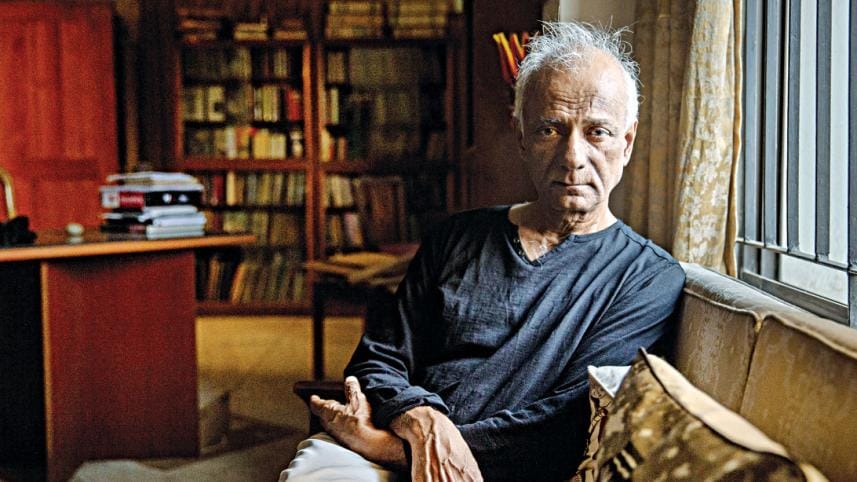
Prominent theater personality and founding chairman of Dhaka University's Department of Drama and Music Syed Jamil Ahmed, resigned from his position as the Director General of the Bangladesh Shilpakala Academy last Friday. The abrupt resignation has sparked debates, controversies and discussions across the cultural sphere, prompting questions about the reasons behind his decision.
As the ongoing allegations, contentions and discussions were addressed by the Cultural Advisor Mostafa Sarwar Farooki through his Facebook posts and the Ministry of Cultural Affairs through a press note, Syed Jamil Ahmed clears his stance once again in an interview.
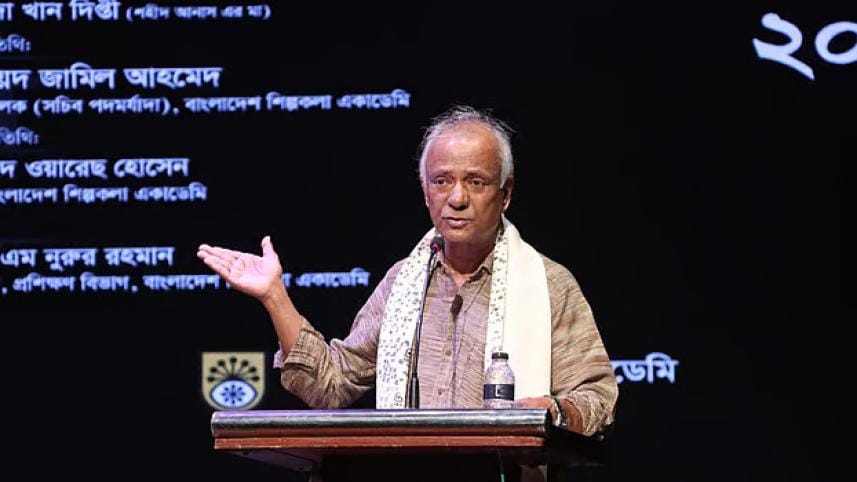
Talking about his sudden resignation, the cultural personality said any kind of self-motivated resignation is instantaneous and probably that's why his resignation seemed out of the blue to a few. He emphasised that when personal dignity is at stake or the responsibilities of a role cannot be fulfilled, resignation should be a viable option. For some time, he had been facing bureaucratic obstacles in fulfilling the responsibilities he had committed to when he took up the role of Director General.
Jamil had already been contemplating his exit and had informed the board members that he intended to complete the annual plan for the current fiscal year before stepping down. However, the "toxic relationship" with the Academy's adviser and issues surrounding budget allocation by the Ministry of Finance ultimately pushed him to expedite the decision.

Speaking candidly with Prothom Alo, Jamil stated, "Given the same level of sensitivity, the adviser, Mostafa Sarwar Farooki, should also step down."
According to Syed Jamil Ahmed, his resignation was a statement against a lack of moral integrity in governance. He underscored that when power is not wielded for public good, it corrupts. Leaders either become despots by clinging to power or lose their self-respect by becoming subservient. Neither benefits the institution or the people it serves.
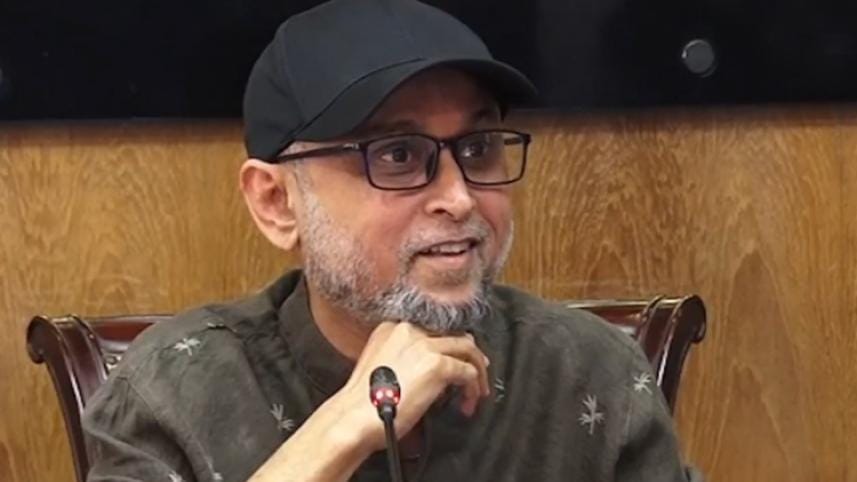
He added that the role he held had become meaningless when his ability to act in the institution's best interest was obstructed.
While there may have been other ways to handle the issues, Jamil argued that these alternatives would have involved compromising with unauthorised and unethical practices. Corruption and the undue influence of various groups had been stifling the Academy's independence and the cultural revival it sought to spark.
Regarding claims made by the Academy's cultural adviser on social media, who suggested that Jamil's statements were "false" and "born out of frustration," Jamil was unwavering. He said, "I have been working in this country, at Dhaka University, for nearly 50 years. No one can come forward and call me a liar. I don't speak behind people's backs—I say what I have to say, face to face."
The adviser's criticism, Jamil argued, stemmed from either a lack of understanding or an unwillingness to accept responsibility. He highlighted the recent controversy over the Bangla Academy Literary Award, pointing out that it was the adviser who failed to handle the situation and damaged the institution's reputation through his actions.

Fighting for Shilpakala's Autonomy
Jamil had accepted the role on the condition that the Academy would be given full autonomy. He stepped down from his teaching position at Dhaka University and his own theater group to dedicate himself fully to the Academy. However, the situation changed after a new adviser was appointed, who continually interfered with his work.
Despite laying out his plans in a three-hour meeting with the adviser, outlining the urgent need for funds to renovate 12 auditoriums across the country, his proposals were blocked. The adviser bypassed Jamil and instead empowered the Academy's secretary as the "focal point" for the Ministry, causing delays and roadblocks in the institution's activities.
Furthermore, Jamil sought to end various corrupt practices within the Academy. He put a stop to employees receiving honorariums for participating in cultural events while also drawing their regular salaries, and he banned the use of Academy resources for private functions hosted by government officials.
The resistance to these changes, Jamil remarked, had created divisions within the Academy. On top of that, incidents like office file theft and other forms of internal sabotage further hindered his work. One of the final straws was when the adviser asked Jamil to authorise payment for a video project he knew nothing about. When Jamil refused without a written request, the disagreement escalated into a heated argument.
While Jamil was not directly pressured to resign, he had made it clear several times that he would not hold onto a position where he could not work freely. He refused to compromise his principles or dignity.



 For all latest news, follow The Daily Star's Google News channel.
For all latest news, follow The Daily Star's Google News channel. 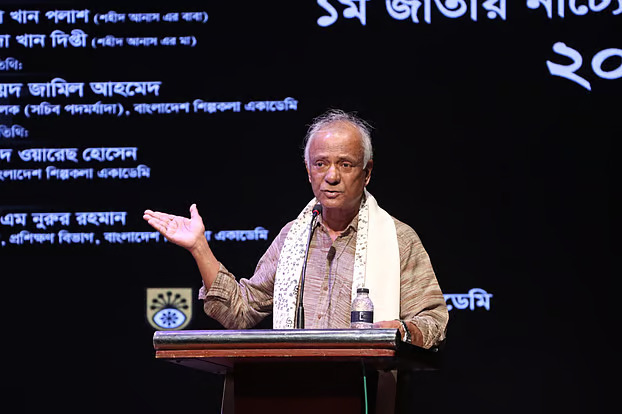
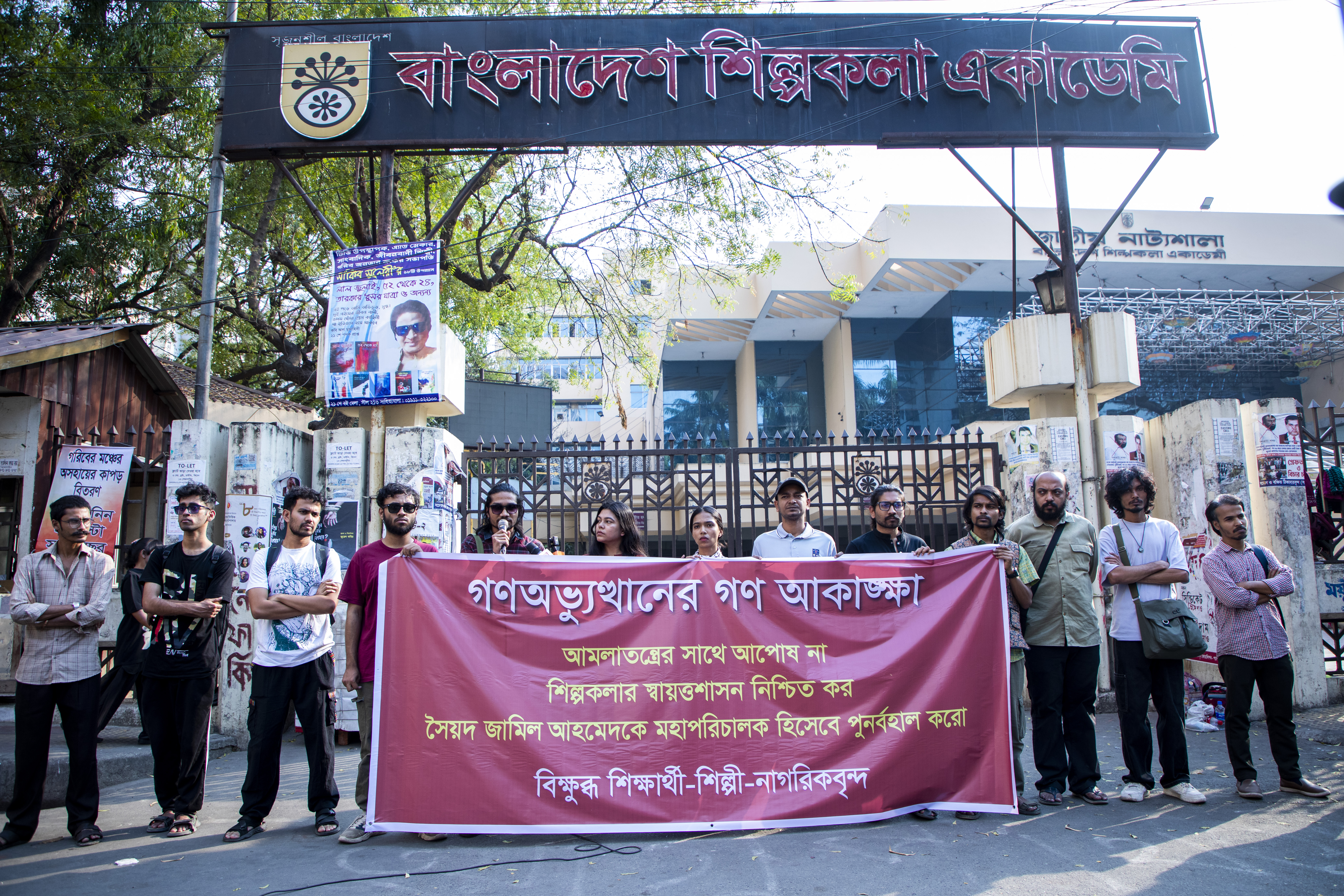
Comments